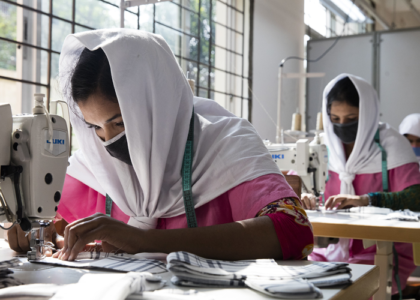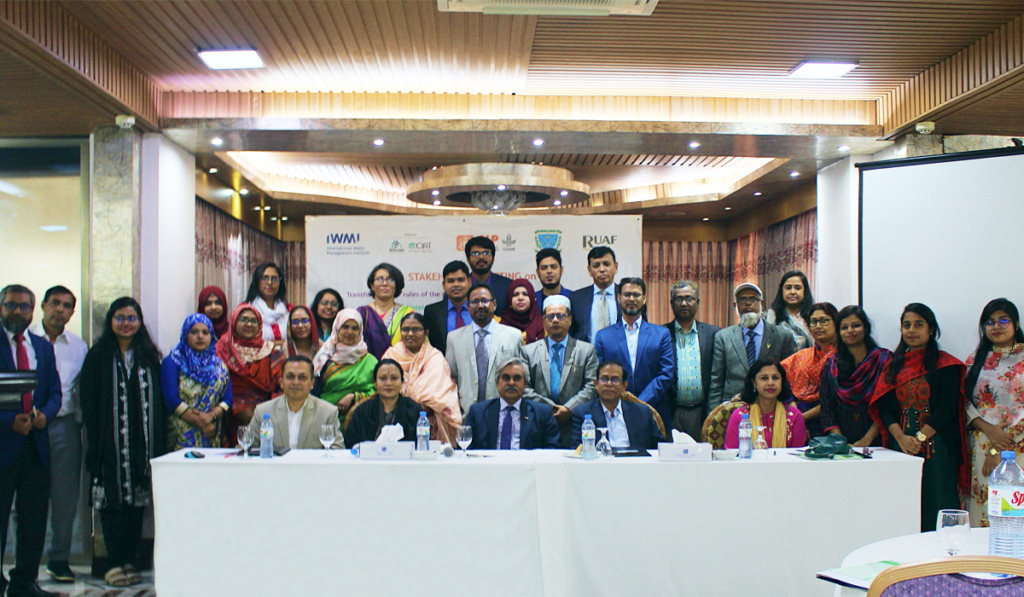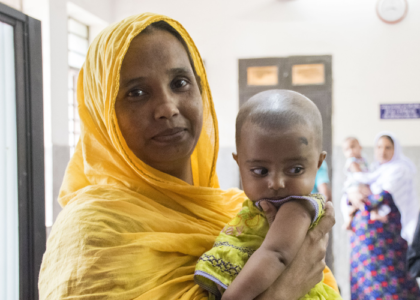
The textile industry is an important source of revenue and employment in Bangladesh, where an estimated 60% of the approximately 4 million people who work in it are women. The millions of young women who migrate from rural areas to Dhaka to work in the garment factories of its peri-urban area move there to earn more than they can at home, but that migration implies adapting to an urban space that is highly unequal, gendered and otherwise challenging.
When it comes to marginalized populations such as textile workers, who may be unregistered and considered ‘temporary’ residents, urban policy and development planning officials often overlook issues such as food availability and water security. Meanwhile, research on the intersection of gender and food security tends to focus on rural contexts, even though little is known about whether the rural-urban migration of young women represents a move toward empowerment, or to an urban environment fraught with challenges and hardship.
To address this cross-sectoral knowledge gap, scientists from Bangladesh Agricultural University (BAU) and international organizations designed a research project titled ‘Transforming the rules of the game: Gendered livability in peri-urban Dhaka.’ The study, which was implemented in 2022 and funded by the CGIAR GENDER Impact Platform, focused on understanding issues related to the peri-urban food and water systems and how they affect the lives of young women garment workers.
At the end of project implementation in December, 32 participants – 56% women – gathered in Dhaka for a stakeholder consultation workshop. Participants included representatives of government, local and international agricultural organizations, NGOs, universities, and the private sector, and had expertise in areas as varied as nutrition, food systems, environment, and urban development.

BAU professors Sadika Haque and Bentul Mawa, who led research on the impact of climate change and rural—urban migration on the food governance system, explained that women who work in Dhaka’s garment factories live in residential areas with very limited public services such as waste management, water and health care.
“Women garment workers have very few options for purchasing food and little time for shopping or household chores. They also have to cope with concerns such as increasing food prices, or the possibility of problems with local people in an area far from friends and families, and where they may be unfamiliar with local norms,” said Sadika Haque.
BAU sociology professor Samina Luthfa explained that garment factory workers are involved in global value chains that exploit women in the Global South and are characterized by structural inequality. Those women workers commonly face workplace problems and gender relation challenges.
“Factory managers view workers as easily replaceable cheap labor, and young women workers commonly endure exploitative conditions,” Luthfa said. “At the same time, the residential areas they live in are very insecure in terms of clean water, food, and nutrition,” she added.
Luthfa highlighted that many women garment workers face underlying gendered issues such as husbands depending on their earnings or being pressured to pay the debts of their family or in-laws.
“Evidence suggest that the income women earn from factory jobs isn’t leading to empowerment. Rather, its positive impacts are limited by gender inequality and patriarchal gender norms that persist in both the workplace and households,” she said.

According to Dr. Mohammad Yunus, Senior Research Fellow at the Bangladesh Institute of Development Studies, many of the challenges women workers face result from the wages and working conditions themselves.
“There is a vicious circle of child under-nutrition that starts with women working in exploitative conditions, for low salaries, and inadequate diets. In current peri-urban factory working conditions, women’s involvement in economic activities won’t lead to empowerment, which needs to be addressed.
“Some of the gender-based exclusion and marginalization that women workers face could be addressed by changing regulations, laws and policies. Raising our collective voices to policy makers is therefore very important,” observed Dr. Rudaba Khondoker, Bangladesh Country Director, Global Alliance for Improved Nutrition (GAIN).
Social scientist Sharifa Parvin explained that the Food and Agriculture Organization (FAO) and Wageningen University Research (WUR) are working with the Government of Bangladesh to make Dhaka’s peri-urban food system more gender inclusive and equitable. Under a five-year project called “Support for Modelling, Planning and Improving Dhaka’s Food System,” which ends in June 2023, FAO and WUR have collaborated 12 government and non-governmental partners in areas that include improving food and nutrition security and food safety.
Nozomi Kawarazuka, a social scientist with the International Potato Center (CIP), explained that the CIP-led CGIAR Research Initiative on Resilient Cities will complement the FAO project and expand on its achievements in the coming years. That Initiative, which has begun work in Bangladesh, Ethiopia, Ghana, Kenya, Philippines and Peru, aims to develop approaches, impact pathways and partnerships to take interventions to scale, in those countries and others.
“The knowledge gained from this research will help guide and strengthen future interventions,” said Kawarazuka. “One thing that is certain is that efforts to improve peri-urban food systems have to address women’s needs and constraints.”
The workshop was organized by the Alliance of Bioversity & CIAT, Bangladesh Agricultural University (BAU), International Potato Center (CIP) International Water Management Institute (IWMI), Interdisciplinary Institute for Food Security (IIFS), Mymensingh District, and supported by the CGIAR GENDER Impact Platform.
